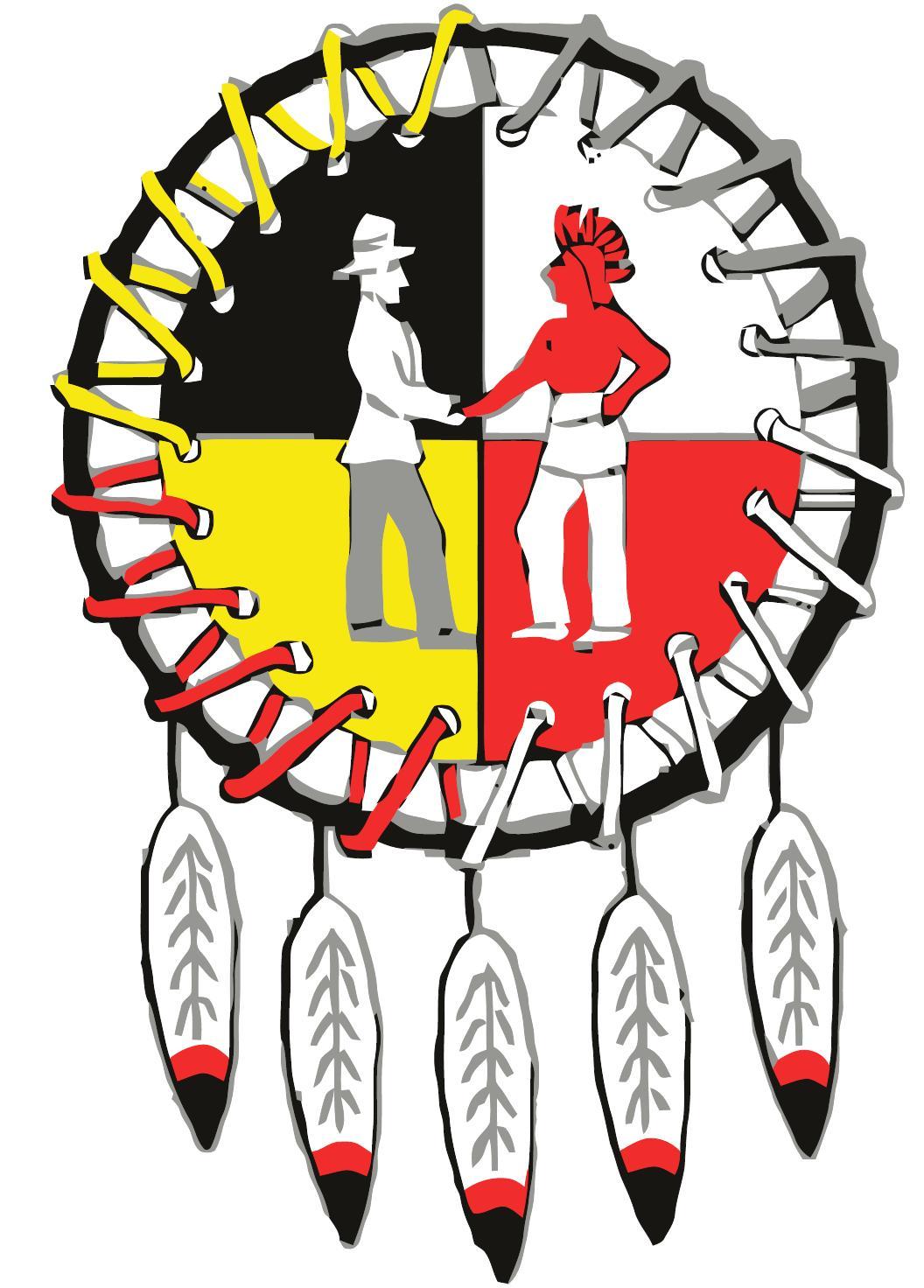First Nations for Sports
https://canadianhistoryworkshop.files.wordpress.com/2013/01/treaty-8-logo_fliped.jpg
Sports teams have used First Nations as mascots and logos for many years, causing controversy on whether the act should continue or be prohibited. Some indigenous people find the team logos offensive and unnecessary, while others, including fans of the popular sports teams and First Nations themselves, believe it is not derogatory towards First Nations.
There are positive influences in using First Nation culture as a logo. For one thing, it brings awareness to those who are blinded to notice the presence and history of First Nations. It carries their footprints through a well-known brand, giving them recognition for being the owners of the land. While this may seem like a positive trend, there is still controversy on certain team logos and mascots, which dehumanizes them with exaggerated features or stereotypical images. This demeans the Aboriginal people resulting in them being placed into an inferior category; therefore, there needs to be a limitation. Having said that, referring to them as First Nations does not demean them. For these reasons, sports teams should be allowed to use First Nations as their logo, provided they seek their permission and approval. Take Edmonton Eskimos as an example. The term “Eskimo” referred to the Inuit people as eaters of raw meat; in other words, unintelligent cavemen. The Inuit community have spoken out hoping for a name change, but no change was made. Despite having the federal government and Inuit organizations stop using the word in early 1970s, the Edmonton CFO football team continue to use it. Words used to appropriate a culture and turning them into entertainment is disrespectful. In this case, the Edmonton Eskimos should have considered the Inuit people and communicated with them first to avoid causing harm.
Using First Nations as logos should not be banned, but there are certain boundaries that need to be considered. Rita Pyrillis, a Native American born and raised in Chicago, has shared her story of the difficulty living with transparency through her writing Sorry for not being a Stereotype. People assume she is an immigrant as her appearance does not fit the perception of a First Nation to others surrounding her. They see right through her, unable to tell what is fact or what is fiction: “Sometimes strangers think I’m from another time. They wonder if I live in a teepee or make my own buckskin clothes or have ever hunted buffalo.” (Pyrillis). Based on these stereotypes, they are treated as simple people stuck in the past. To this extent, sports teams should research the history behind the names they plan to use to avoid generalizing an image of First Nations through their logo. In the graphic novel Rising Above by Steven Keewatin Sanderson, he shares examples of positive and negative stereotypes that exists throughout accessible resources. Positive stereotypes deconstruct First Nations, adding new perceptions to their image, which both raises the standards and gives an unrealistic image. Negative stereotypes generalize their actions and appearance, giving an identity that small minded people would understand. Steven, using the example of Pocahontas, wrote about the fact that many illustrated novels sexualize First Nations, portraying them as weak and nothing more: “Aboriginal women are more than just objects to be sexualized, they are strong powerful leaders and the givers of life.” (Sanderson, 39). In view of the above, sports teams should not deconstruct First Nations to meet their standards for logos. They are acceptable as long as they keep their logos realistic, respecting and honouring First Nations true identities.
In conclusion, it is acceptable for sports teams to use First Nations as their logos while being mindful and respectful of the symbolic meanings and significance to the First Nations. Researching about their history and communicating with the owners of the culture is far more acceptable than just borrowing from it.
Works Cited
Obed, Natan. Edmonton Eskimos Name Debate. 22 November 2017. March 2018. <https://globalnews.ca/video/3874931/edmonton-eskimos-name-debate>.
Snowdon, Wallis. Edmonton Eskimos name an insult to the Inuit, says local Inuk woman. 14 November 2017 . Monday March 2018 . <http://www.cbc.ca/news/canada/edmonton/edmonton-eskimos-name-change-inuk-critic-1.4401422 >.
